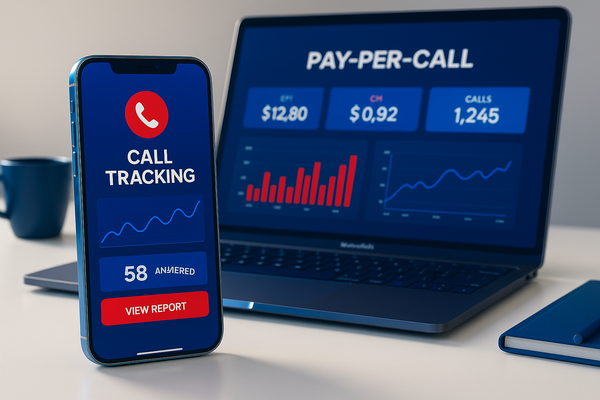The Advantages and Disadvantages of Owning Real Estate vs Personal Property

Introduction
Real estate and personal property are two major forms of property ownership. While owning real estate, such as a house or a piece of land, can provide a sense of security and financial stability, it also comes with certain disadvantages. In contrast, owning personal property, such as cars, furniture, or electronics, can offer more flexibility and convenience, but also has its own set of drawbacks.
One of the primary disadvantages of owning real estate is the cost. Real estate is often a significant investment, requiring a large sum of money upfront to purchase and maintain. Additionally, owning real estate also involves ongoing expenses, such as property taxes, maintenance, and repairs, which can add up over time.
Another disadvantage of owning real estate is the lack of flexibility. Unlike personal property, which can be easily bought and sold, real estate can be more difficult to liquidate. This can make it challenging to move to a new location or take advantage of new opportunities, as it may require selling the property first.
On the other hand, personal property is generally easier to buy and sell and can offer greater flexibility and mobility. However, it can also be subject to depreciation and obsolescence, meaning, values may decline over time.
Overall, while both real estate and personal property have their advantages and disadvantages, it's important to carefully consider your needs and goals before making any major investments.

The Advantages of Owning Real Estate vs Personal Property
Real estate refers to land, buildings, and other structures permanently affixed to the land, while personal property is any movable property that is not attached to the land. While both real estate and personal property have their advantages and disadvantages, there are several reasons why owning real estate can be more beneficial than owning personal property.
1. Appreciation in Value: Real estate tends to appreciate over time, while personal property tends to depreciate. Real estate can be a good long-term investment, and the value of the property may increase over time, providing the owner with a substantial return on investment.
2. Cash Flow: Real estate can provide a reliable source of cash flow, whether through rental income or through capital gains when the property is sold. Personal property does not provide this type of steady income stream.
3. Tax Benefits: Real estate owners can take advantage of various tax benefits, such as property tax deductions, mortgage interest deductions, and depreciation deductions. Personal property does not offer the same level of tax benefits.
4. Leverage: Real estate can be purchased using leverage, which means the buyer can use borrowed funds to make a purchase. This can result in a higher return on investment, as the buyer can use other people's money to make money. Personal property cannot be purchased using leverage in the same way.
5. Stability: Real estate is generally considered to be a stable investment, as the value of land and property tends to appreciate over time. In contrast, the value of personal property can fluctuate greatly depending on supply and demand, fashion trends, and other factors.
6. Control: Real estate owners have a high degree of control over their property, including the ability to make improvements, add value, and set rental rates. Personal property owners have less control over their property, as they cannot make significant improvements to increase the value of the property.

7. Diversification: Owning real estate can be a way to diversify an investment portfolio, as it is a tangible asset that is not tied to the stock market or other financial markets. This can provide a level of stability and protection against market volatility.
8. Legacy: Real estate can be passed down to future generations as part of an estate plan, allowing the owner to leave a lasting legacy. Personal property is not typically passed down in the same way, as it is often consumed or disposed of over time.
Disadvantages of Owning Real Estate vs Personal Property
Here is an explanation of the disadvantages of owning real estate compared to personal property:
Real estate and personal property are two major categories of assets that individuals can own. While both types of assets have their unique advantages and disadvantages, there are several disadvantages associated with owning real estate that do not apply to personal property.
1. High Initial Costs: The first disadvantage of owning real estate is the high initial cost associated with purchasing property. Real estate is often the largest purchase a person will make in their lifetime, and it typically requires a significant down payment, closing costs, and other expenses such as property inspections, appraisals, and legal fees. In contrast, personal property, such as furniture or a car, can be purchased at a much lower cost.
2. Ongoing Expenses: Another disadvantage of owning real estate is the ongoing expenses associated with maintaining and repairing the property. Homeowners are responsible for paying property taxes, homeowner's insurance, and utility bills in addition to maintenance and repair costs. Personal property, on the other hand, may require occasional maintenance but does not have ongoing expenses such as property taxes.
3. Limited Liquidity: Real estate is considered a relatively illiquid asset because it takes time and effort to sell a property. The process of selling a property can take several months, and homeowners may need to lower their asking price to attract buyers. In contrast, personal property such as stocks, bonds, and other financial assets can be sold quickly and easily with minimal transaction costs.
4. Risk of Depreciation: Real estate is also subject to the risk of depreciation, meaning that the value of the property may decline over time. Economic factors such as interest rates, unemployment rates, and housing supply can impact the value of real estate. In contrast, personal property such as gold or art may hold its value or appreciate over time.
5. Limited Flexibility: Real estate is also less flexible than personal property Homeowners may be limited in their ability to modify or improve their property due to zoning regulations or homeowner association rules. Additionally, homeowners may be required to sell their property in order to relocate for work or other reasons, which can be a time-consuming and costly process.
6. Legal Issues: Finally, owning real estate neighbours can also come with legal issues, such as disputes with neighbors, zoning violations, and property line disputes. These issues can be time-consuming and costly to resolve and can impact the value of the property.

Conclusion
While owning real estate can provide long-term financial benefits such as appreciation and equity, it also comes with significant disadvantages such as high upfront costs, ongoing expenses, and limited flexibility. Personal property, on the other hand, offers greater mobility and flexibility, as well as lower upfront costs and maintenance expenses.
However, personal property generally does not appreciate real estate, and may not provide the same level of long-term financial security. Ultimately, the decision to invest in real estate or personal property depends on individual circumstances and financial goals and should be carefully considered before making a decision.





